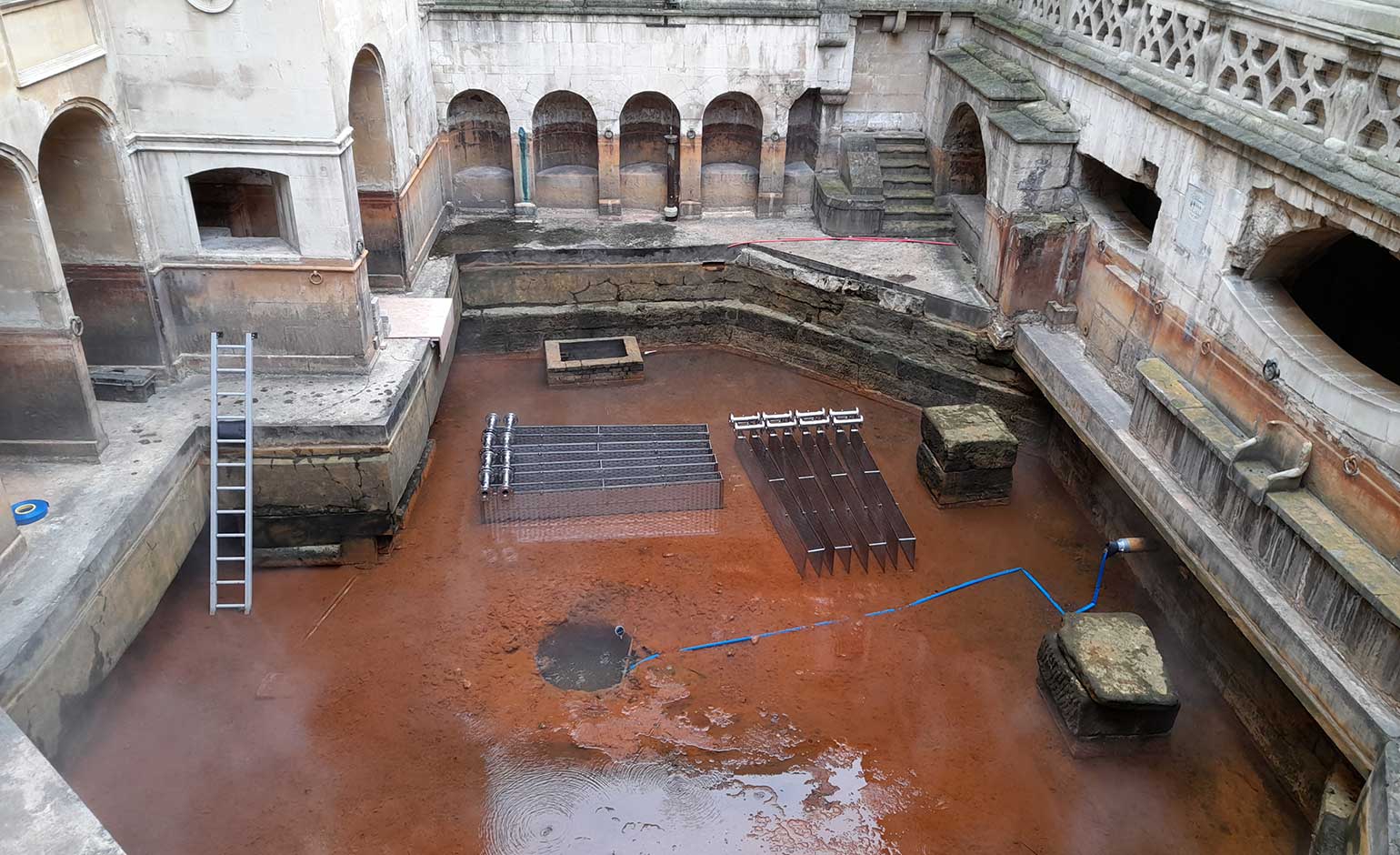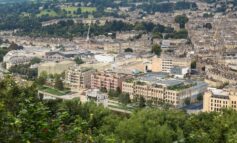Bath & North East Somerset Council has been recognised as one of the UK’s top ten local authorities working to tackle climate change.

The energy exchange system installed in the King’s Bath at the Roman Baths site | Photo © B&NES Council
Data published by Climate Emergency UK showed that B&NES Council scored 57% on its Council Climate Action Scorecard, ranking seventh overall.
Only 41 of the UK’s 388 local and combined authorities scored above 50%, with the average score being just 32%.
Climate Emergency UK scored councils on their climate actions against seven criteria: biodiversity; buildings and heating; collaboration and engagement; governance and finance; planning and land use; transport; and waste reduction and food.
B&NES ranks third overall on biodiversity with a total score of 69%, recognising the programmes and campaigns that have been put in place to boost diversity. These include Bathscape, Somer Valley Rediscovered, Waterspace Connected and Chew Valley Reconnected.
Bath & North East Somerset Council was the first Local Planning Authority in the West of England to adopt a biodiversity net gain policy.
The highest score achieved by the council was for Buildings & Heating (84%), ranking it fifth in the country.
This is a result of schemes such as the energy exchange blades installed in the King’s Bath to take heat from the King’s Spring to heat the Roman Baths and Pump Room, as well as the Bath World Heritage Centre and Roman Bath Clore Learning Centre.
Planning & Land Use was another section the council scored highly in (77%), reflecting the fact that it was the first in England to successfully adopt an energy-based net zero housing policy as part of its commitment to tackling the climate emergency.
Councillor Sarah Warren, deputy leader and cabinet member for Climate Emergency and Sustainable Travel, said: “This is excellent news, it helps to highlight the progress that Bath & North East Somerset Council is making.
“We are at the forefront nationally with many of our policies related to the climate and ecological emergencies.
“A great example of this is the work we’ve done on our planning policy, which will be the foundation for the council’s climate emergency ambitions.
“These scores are also a reminder of the work we still have to do. Having secured funding to support a number of sustainable transport schemes across the district, we are significantly improving our travel choices including public transport, walking and cycling routes and helping to better connect local communities.”
Other scores were Collaboration & Engagement (62%); Waste Reduction & Food (29%); Governance & Finance 47% and transport (26%).
More information on the scores and methodology can be found here.



